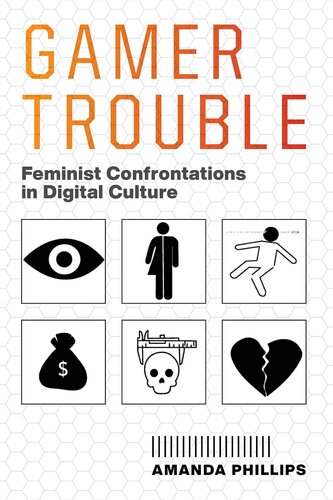

Most ebook files are in PDF format, so you can easily read them using various software such as Foxit Reader or directly on the Google Chrome browser.
Some ebook files are released by publishers in other formats such as .awz, .mobi, .epub, .fb2, etc. You may need to install specific software to read these formats on mobile/PC, such as Calibre.
Please read the tutorial at this link: https://ebookbell.com/faq
We offer FREE conversion to the popular formats you request; however, this may take some time. Therefore, right after payment, please email us, and we will try to provide the service as quickly as possible.
For some exceptional file formats or broken links (if any), please refrain from opening any disputes. Instead, email us first, and we will try to assist within a maximum of 6 hours.
EbookBell Team

5.0
50 reviewsComplicating perspectives on diversity in video games
Gamers have been troublemakers as long as games have existed. As our popular understanding of “gamer” shifts beyond its historical construction as a white, straight, adolescent, cisgender male, the troubles that emerge both confirm and challenge our understanding of identity politics. In Gamer Trouble, Amanda Phillips excavates the turbulent relationships between surface and depth in contemporary gaming culture, taking readers under the hood of the mechanisms of video games in order to understand the ways that difference gets baked into its technological, ludic, ideological, and social systems.
By centering the insights of queer and women of color feminisms in readings of online harassment campaigns, industry animation practices, and popular video games like Portal and Mass Effect, Phillips adds essential analytical tools to our conversations about video games. She embraces the trouble that attends disciplinary crossroads, linking the violent hate speech of trolls and the representational practices marginalizing people of color, women, and queers in entertainment media to the dehumanizing logic undergirding computation and the optimization strategies of gameplay. From the microcosmic level of electricity and flicks of a thumb to the grand stages of identity politics and global capitalism, wherever gamers find themselves, gamer trouble follows. As reinvigorated forms of racism, sexism, and homophobia thrive in games and gaming communities, Phillips follows the lead of those who have been making good trouble all along, agitating for a better world.